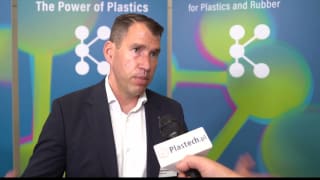
MOL Group has reached a milestone in its Shape Tomorrow strategy by completing its first ISCC PLUS-certified production run using circular feedstock at the MOL Petrochemicals site in Tiszaújváros, Hungary. The pilot demonstrated the conversion of post-consumer plastic waste-based feedstock into high-quality polyethylene and polypropylene. It confirms the company’s capability to integrate circular inputs into existing petrochemical assets and supports its ambition to advance sustainable petrochemicals in Central and Eastern Europe.
During the test, circular feedstock derived from post-consumer waste was introduced to the steam cracker. This enabled the production of circular-based monomers, which were subsequently processed into polymers. The pilot was conducted under the ISCC PLUS mass balance approach, a methodology that tracks and accounts for circular material when co-processed with traditional inputs, ensuring the balance across total process flows.
“This successful test shows that MOL Group can now process circular feedstocks according to ISCC PLUS certified process, turning plastic waste into new, high-value products,” said Péter Császár, Senior Vice President, MOL Group Chemicals. “It is a significant step towards sustainable petrochemicals and strengthens our position as a leading circular economy player in Central and Eastern Europe.”
Certification and operational scope
The achievement follows ISCC PLUS certification obtained in 2024 by MOL Petrochemicals in Tiszaújváros and by Slovnaft in Bratislava for steam cracker and polymerization units. With certification in place across these assets, the company can attribute circular content via mass balance from cracker feed through to polymer output, in line with scheme requirements.
Strategic context and next steps
Maximizing synergies with waste management is a core element of the Shape Tomorrow strategy. MOL Group aims to continue the transformation towards circular chemicals and to utilize up to 1.5 million tonnes of feedstock for the energy industry by 2030. The company’s portfolio includes a concession to manage municipal waste in Hungary, past acquisitions in plastics recycling in Hungary and partnerships to advance chemical recycling technologies. Building on the pilot, MOL Group will continue testing additional circular feedstocks and developing processes to expand the role of waste as a raw material for plastics production.




